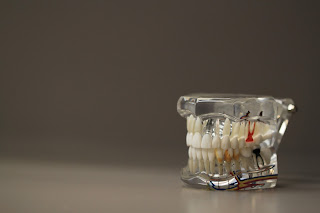Unless you’re a dentist or orthodontist, you probably know very little about your teeth besides what experts recommend and whatever’s in the new. However, how much of that is complete truth? We’re here to demystify some of these myths you’ve heard about your teeth!
1 Sugar Causes Cavities
While it’s true that sugar causes cavities, it’s not the only thing! Any kind of carb that you eat can cause your mouth to create the acidic environment necessary to grow a cavity. This means that chocolate bar is just as likely to cause a cavity as that stalk of celery.
2 Whitening Makes Teeth Brittle
Yes, whitening your teeth isn’t always the best idea - especially if you already have weak enamel or sensitive teeth and gums. However, it will not cause your teeth to weaken. If you whiten your teeth you have the same chance of cracking them as an obvious three cup a day coffee drinker.
3 Aging Causes Tooth Loss
Your Grandma may have a set of dentures, but that doesn’t mean you will! While seniors tend to have more special needs when it comes to their teeth, there is no reason why they shouldn’t be able to keep their full set well into their golden years. Proper dental health makes all the difference.
4 Brush Immediately After Eating
Yes, you do need to brush your teeth after eating a meal. However, brushing right away is likely not the best idea. Your tooth enamel softens after eating to allow your saliva to do it’s job, dissolving food particles. Waiting about an hour or so after a meal will ensure that you don’t brush away an enamel in the process.
5 Kids Are Cavity Prone
Actually, seniors are more cavity prone than kids! This typically has to do with various medications that cause dry mouth. Less saliva generally means more cavities. This is why good dental health practices throughout your lifetime are so important.
6 You’re Too Old For Braces
This is majorly false! While your teeth and gums may have changed over time, you’re never too old for braces! In fact, Dr. Reed would be more than happy to consult with you to figure out which orthodontic solution is best for you.
Get the perfect smile you’ve always wanted, and learn how to properly take care of your teeth. Schedule an appointment with Dr. Reed today!



